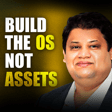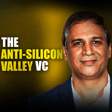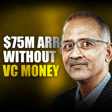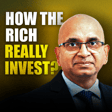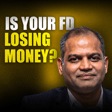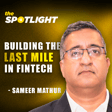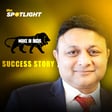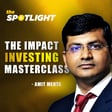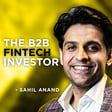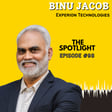
Sasha Mirchandani(Kae Capital) Explains How Small VC Funds Beat Big Ones
What if the secret to building a $8.5 billion VC portfolio isn't chasing billion-dollar markets, but backing the right founders who can pivot their way to success?
In this episode, Sasha Mirchandani, Founder of Kae Capital and Co-Founder of Mumbai Angels, reveals why 90% of venture capital funds underperform and how his contrarian approach has created 4 unicorns including Porter, Fractal Analytics, Zetwerk, and Tata 1mg.
From traveling second-class trains as the son of Onida's Founder to becoming India's pioneer seed-stage investor, Sasha shares brutally honest insights on what it really takes to succeed in venture capital. He opens up about the 20-30 unicorns he passed on (including Ola and Nium), why Kae Capital avoided the crypto bubble, and how investment #29 from recycled capital became Porter's $1.2 billion unicorn story. Sasha explains why he deliberately keeps his funds small despite the ability to raise $300 million+, the recycling capital strategy that created hidden winners, and his founder-first investment philosophy that prioritizes grit and conscientiousness over market size. He shared this remarkable 25-year journey in this candid conversation with host Akshay Datt, revealing practical advice on pitch decks, portfolio construction, and surviving India's funding cycles while navigating Trump tariffs and startup ecosystem challenges.
What You'll Learn:
👉Why 90% of VC funds fail and how Kae Capital's small fund strategy generated 4 unicorns worth billions
👉The recycling capital playbook that turned investment #29 into Porter's $1.2B unicorn exit
👉How InMobi pivoted 4 times and Fractal transformed from Woodle.com to a pre-IPO AI unicorn
👉Sasha's "founder over TAM" philosophy and why he'd rather get market size wrong than entrepreneur quality wrong
👉Inside Kae Capital's LP strategy balancing 50% Indian capital with global investors expecting different returns
👉Surviving the crypto mania, edtech bubble, and Trump tariffs while maintaining investment discipline
CHAPTERS:
00:00 - What Is a Venture Capitalist? Sasha's Definition
03:52 - Wealth Manager vs Builder: Kae Capital's Investment Philosophy
08:19 - Why Venture Capital Is a Crappy Asset Class
12:13 - Fund Strategy: 25 Investments, Recycling Capital, Portfolio Construction
18:04 - Why Smaller VC Funds Outperform Larger Funds
23:40 - India's Startup Funding: 50% Indian LPs Now
28:11 - Investment Thesis: Founder Quality Over Market Size
34:38 - Avoiding Hype Cycles: Crypto Bubble, EdTech Mania
40:13 - The Unicorns Sasha Passed On: Ola, Nium, Mint
46:56 - Onida's Legacy: 550 Competitors Dead, One Survived
56:36 - Second Class Train to VC Success Story
1:00:50 - Starting Kae Capital: From BPO to Fractal's First Investment
1:06:08 - TAM Lessons From Father's Electronics Business
#VentureCapitalIndia #SeedFundingIndia #IndianStartupEcosystem #StartupFundingIndia #EarlyStageVC #IndianVCEcosystem #FounderFirstInvesting #VCStrategy #SmallFundAdvantage #RecyclingCapital #UnicornStartups #IndiaUnicorns #VCPortfolioStrategy #PitchDeckAdvice #StartupInvestor #VentureCapitalFunding #IndianEntrepreneurs #AngelInvestingIndia #PreSeedFunding #SeriesAFunding #StartupEcosystemIndia #FundingWinterSurvival #AIStartupsIndia #ConsumerTechIndia #SaaSFundingIndia #QuickCommerceIndia #LogisticsTechIndia #ManufacturingTechIndia #FinTechInvestments #VCPodcast #StartupPodcastIndia #EntrepreneurshipIndia #BusinessPodcastIndia


